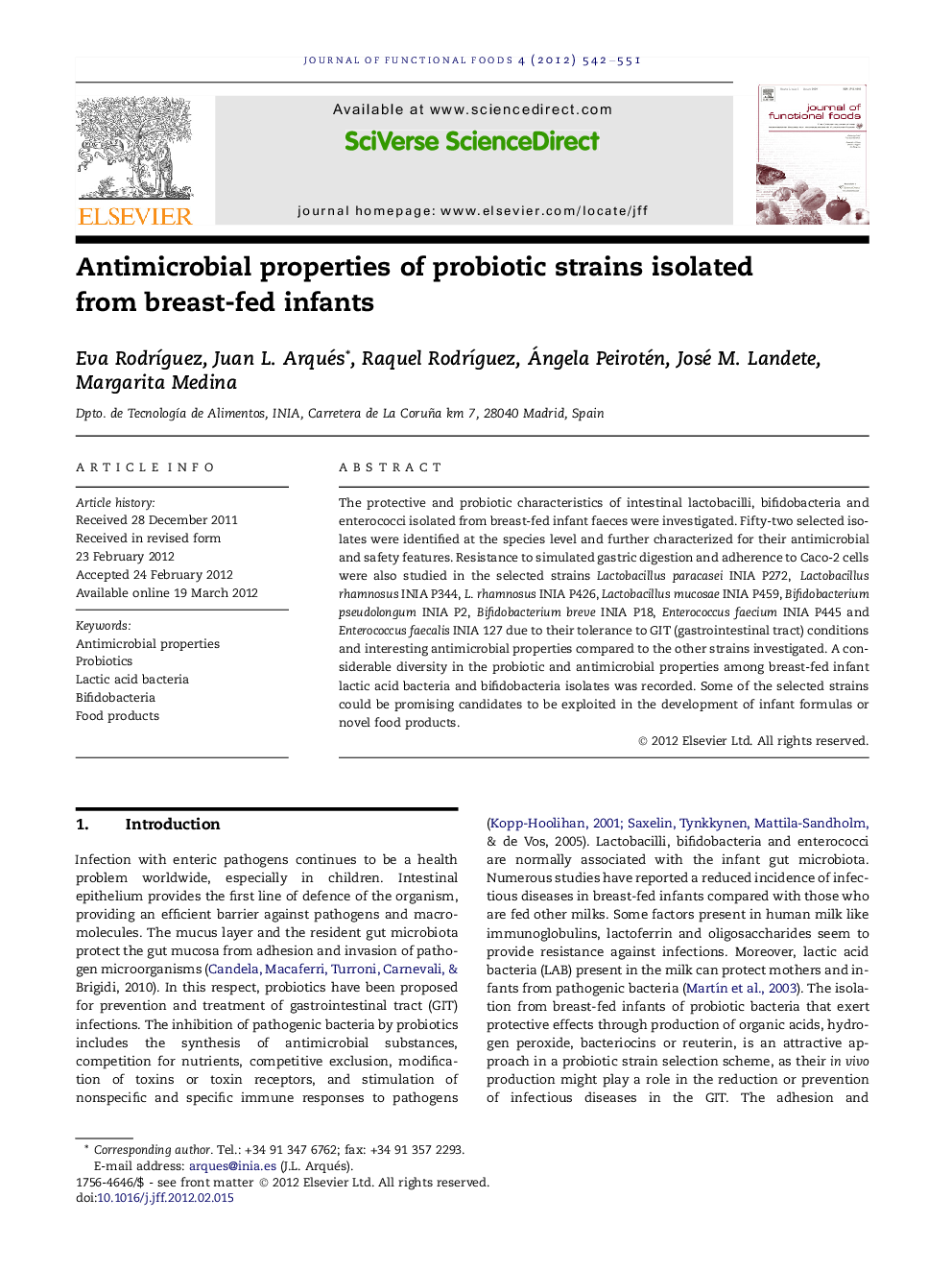| کد مقاله | کد نشریه | سال انتشار | مقاله انگلیسی | نسخه تمام متن |
|---|---|---|---|---|
| 1219840 | 967743 | 2012 | 10 صفحه PDF | دانلود رایگان |

The protective and probiotic characteristics of intestinal lactobacilli, bifidobacteria and enterococci isolated from breast-fed infant faeces were investigated. Fifty-two selected isolates were identified at the species level and further characterized for their antimicrobial and safety features. Resistance to simulated gastric digestion and adherence to Caco-2 cells were also studied in the selected strains Lactobacillus paracasei INIA P272, Lactobacillus rhamnosus INIA P344, L. rhamnosus INIA P426, Lactobacillus mucosae INIA P459, Bifidobacterium pseudolongum INIA P2, Bifidobacterium breve INIA P18, Enterococcus faecium INIA P445 and Enterococcus faecalis INIA 127 due to their tolerance to GIT (gastrointestinal tract) conditions and interesting antimicrobial properties compared to the other strains investigated. A considerable diversity in the probiotic and antimicrobial properties among breast-fed infant lactic acid bacteria and bifidobacteria isolates was recorded. Some of the selected strains could be promising candidates to be exploited in the development of infant formulas or novel food products.
► We analyzed the characteristics of bacteria isolated from breast-fed infant faeces.
► We evaluate the safety profiles of the selected probiotic strains.
► Selected strains can be exploited in development of protective infant formulas.
Journal: Journal of Functional Foods - Volume 4, Issue 2, April 2012, Pages 542–551